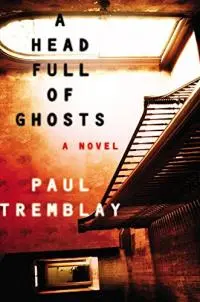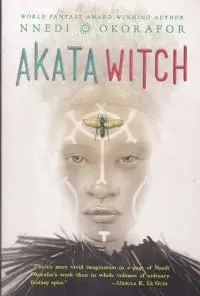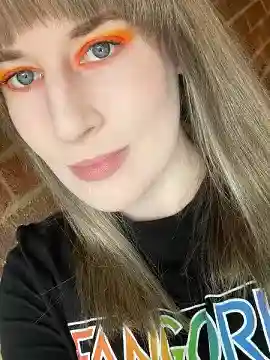One of the many reasons I love writing so much is because it's a craft that continually presents new challenges, which in turn lead to opportunities to become a stronger writer. I don't believe anyone ever completely masters writing. It's too subjective of an art to perfect. However, it's a craft where we constantly learn from one another, whether it's new drafting techniques, ways to gather ideas, alternative narrative structures, or topics we've never researched before. Writing is a forever learning process, and one way to learn is to read not only in your favorite genre, but from genres you aren't as familiar with. There are countless subgenres out there, but for the sake of length, I'm going to focus on a few elements from horror, romance, science fiction, fantasy, and mystery that can be applied to enhance any story. I recommend annotating books while reading, but if the thought of writing in a book makes your skin crawl, grab a journal, post-its, or laptop and make notes for yourself as you study.
Horror
 I'll start with my favorite genre (I am a horror writer, after all). So, what can writers who don't dabble learn from reading spookiest of genres? To start, horror excels in building dread. Taking notes from a classic like The Haunting of Hill House (Shirley Jackson) or a more contemporary work like A Head Full of Ghosts (Paul Tremblay), dread has long been a staple in the horror genre. Layering tension and suspense in order to lead to a satisfying payoff (or maybe an ambiguous ending, depending on the story), is something that can be borrowed from horror novels and applied to whatever genre you are writing. What might a character in a romance novel be dreading when it comes to finding new love? Or what could an adventurer on a quest in a fantasy novel stumble across during their journey that sends terror into their heart?
I'll start with my favorite genre (I am a horror writer, after all). So, what can writers who don't dabble learn from reading spookiest of genres? To start, horror excels in building dread. Taking notes from a classic like The Haunting of Hill House (Shirley Jackson) or a more contemporary work like A Head Full of Ghosts (Paul Tremblay), dread has long been a staple in the horror genre. Layering tension and suspense in order to lead to a satisfying payoff (or maybe an ambiguous ending, depending on the story), is something that can be borrowed from horror novels and applied to whatever genre you are writing. What might a character in a romance novel be dreading when it comes to finding new love? Or what could an adventurer on a quest in a fantasy novel stumble across during their journey that sends terror into their heart?
Fear of the unknown is another important aspect of horror, and studying how the unknown plays into a story's setting, plot, atmosphere, or conflict can benefit any writer who wants to learn more about establishing tension (for example, Clive Barker's short story "Dread" in the Books of Blood). Fear is perhaps the most universal emotion of them all. Though we each may have different fears, we collectively can understand the sensation of what gets our hearts pounding, and what makes us feel like the very ground is being swept out from under us. Horror plays off of those emotions and usually makes good use of all the senses while doing so. Other than seeing what emerges from the dark, horror lets us know what something terrible smells like, feels like, even tastes like. Learning to explore dread, fear of the unknown, and incorporating full use of the sensorium are great techniques a writer can learn through reading horror.
Romance
Romance novels dominate the scene in terms of sales. Their fans have a fierce loyalty, and it's reflected in the billion-dollar industry romance has created. Yet, readers and writers of romance often have to deal with elitist attitudes about their beloved genre, not unlike readers and writers of horror. Despite how different horror and romance may be, they both often contend with stigmas and have to "prove" themselves as worthy as other genres. Yet, they are both genres that dive deeply into human emotion. Our fears and our passions can guide our lives in such unexpected ways. Horror and romance books unabashedly reflect our nightmares and our dreams. Plus, combining them into horrormance is just delightful.
So, what can writers take away from reading romance books? First of all, pay attention to dialogue. No one does banter quite as well as romance writers, since it can be an essential way for the characters to get to know each other and scope out potential partners. Since romance books typically focus on characters falling in love and overcoming various barriers along the way, they offer great examples of how to tackle quarrels and rebuffs, and how to get characters to work together and overcome what's in their path. Furthermore, romance explores intimacy and desire in unabashed ways. Passion can drive characters to intense actions; though the genre more often inspires hope than not, it also holds a mirror up to real-life relationships, the good and the bad. Romance writers are, in general, pretty fearless with their work.
Romance offers a wide variety of subgenres to choose from. From romantic comedies like Boyfriend Material (Alexis Hall) to serious historical settings like Indigo (Beverly Jenkins), so if you don't want to read a bodice ripper that might rely on stereotypical tropes (or maybe you do! Read whatever you want!), remember the options are pretty limitless when it comes to choosing a romance that may appeal to you.
Science Fiction
Strange landscapes, a reimagined Earth, and other intriguing settings typically come to mind when thinking about popular science fiction novels. These worlds help immerse readers in whatever technology the future may hold, but what writers can particularly take notes on is the suspension of disbelief. Whether using the more realistic elements of math and science, or something more flexible, science fiction writers work hard to maintain the world they've created and to keep readers engaged in that reality.
Science fiction, fantasy, and horror sometimes get lumped together as "speculative fiction" since they often take "what if" questions and run with them, but it's important to note the differences. While horror may focus on the more gruesome and bleak aspects of the question, fantasy will more likely focus on a quest, and offer some hope at the end. Science fiction may concentrate on consequences and how those impact humankind. Though of course, these aren't "rules," just observations; plus with writing, some rules are meant to be broken.
Science fiction is not afraid to ask big questions of humanity, and we tend to keep coming back to the classics. Take Frankenstein (Mary Shelley) for example, which is constantly reinvented for theater, movies, and book spin-offs, sometimes emphasizing the horror and other times focusing more on the science fiction elements. Either way, these ideas stay in our heads for a reason. As writers, we note how other authors pose contemplations of the human condition, how politics or other issues may be focused on—in ways subtle or obvious—so we can figure out what works for us as readers and as writers. Works by Jeff VanderMeer, Nisi Shawl, Ken Liu, and countless others give us plenty of contemporary material to work with, too.
Fantasy
 The first thing that comes to my mind when I think about the fantasy genre is worldbuilding. If you want to learn how to craft a detailed landscape of everything from foliage to homes to clothing, weapons and more, then it's worth your while to study fantasy books. The ability of a fantasy novel to transport the reader into a new place that has its own culture, mythology, geography, currency, and so much more to make it all come to life is an inspiring skill. The Lord of the Rings (J.R.R. Tolkien) is of course a clear example, but take note of writers like Nnedi Okorafor and the late Ursula K. Le Guin as well.
The first thing that comes to my mind when I think about the fantasy genre is worldbuilding. If you want to learn how to craft a detailed landscape of everything from foliage to homes to clothing, weapons and more, then it's worth your while to study fantasy books. The ability of a fantasy novel to transport the reader into a new place that has its own culture, mythology, geography, currency, and so much more to make it all come to life is an inspiring skill. The Lord of the Rings (J.R.R. Tolkien) is of course a clear example, but take note of writers like Nnedi Okorafor and the late Ursula K. Le Guin as well.
In addition to the building of fantastic worlds, fantasy writers are presented with the task of maintaining that realism throughout the epic journeys they create. Convincing readers to accept complex magic systems or other elements used in low or high fantasy can certainly be challenging. Taking note of how a well-written fantasy novel structures its systems throughout the quests and adventures of the characters can be a helpful tool in shaping up one's plotting skills. There are often multiple points of view, as well, so paying attention to how a book switches between characters, especially when it's done in a clean and relevant way, is a great device to analyze while reading. Fantasy is another genre that has spawned endless subgenres and found its way into hybrid genres, so the choices of what to read are pretty endless here.
Mystery
Agatha Christie is one the most translated authors in the world and is also noted as the best-selling novelist of all time. Truly, the Queen of Mystery has made her mark in the world, and her stories are a great place to start when it comes to unraveling the inner workings of a mystery novel.
In Many Genres, One Craft, edited by Michael Arnzen and Heidi Ruby Miller, writer Victoria Thompson notes that it's important for a mystery novel to establish its "Mystery Eternal Triangle" which "consists of the victim, the killer and the sleuth." The idea of how a simple, established triangle can go a long way toward carefully plotting the novel is a great tool that can be applied to any genre. Additionally, mysteries use very structured storylines rife with riddles and red herrings along the way; they're done carefully and with much thought and detail in order to avoid loose ends. From obvious classics like The Adventures of Sherlock Holmes (Arthur Conan Doyle) to contemporary and gender-swapped twists on Holmes like A Study In Charlotte (Brittany Cavallaro), we can see how that formula has been used and reshaped over the years.
Writers can learn so much about plotting in general from mystery stories. The clues need to be cleverly arranged, but we don't want everything revealed all at once. If you're writing a work and want to incorporate twists or unreliable narrators, gleaning information from how it's accomplished in mystery novels is a great place to start your studies, and with everything from courtroom dramas to detective novels to cozy mysteries, there is plenty to choose from.
A Final Note
Overall, while it is essential to read in the genre or genres that you want to write so you can be informed, reading across different genres and all the many, many subgenres out there can only make you better at your craft. It also helps give writers some sense of what makes popular fiction so appealing to mass audiences. Even if you don't want to write what's necessarily "popular," having a solid understanding of a book's structure across different genres can contribute to broadening your writing toolkit. Writing has always been experimental; don't feel the need to limit yourself to only being an expert in one genre or one type of story. When it comes to writing, never stop challenging yourself to learn something new. Limitless ways exist to tell stories, and I hope studying some elements from other genres encourages and inspires your own storytelling.
Get Many Genres, One Craft at Amazon

About the author
Sara Tantlinger is the author of the Bram Stoker Award-winning The Devil’s Dreamland: Poetry Inspired by H.H. Holmes. Along with being a mentor for the HWA Mentorship Program, she is also a co-organizer for the HWA Pittsburgh Chapter. She embraces all things macabre and can be found lurking in graveyards or on Instagram @inkychaotics.







